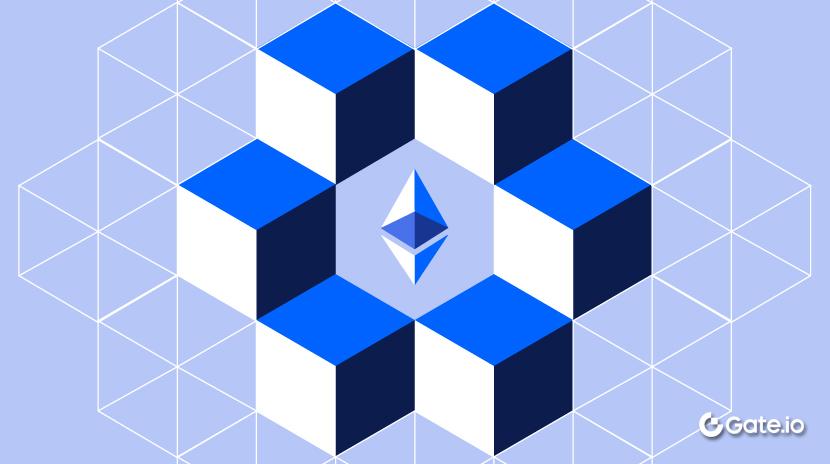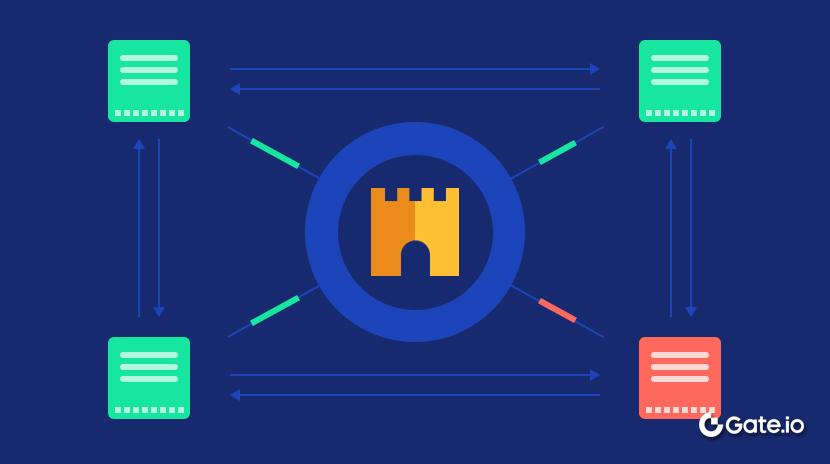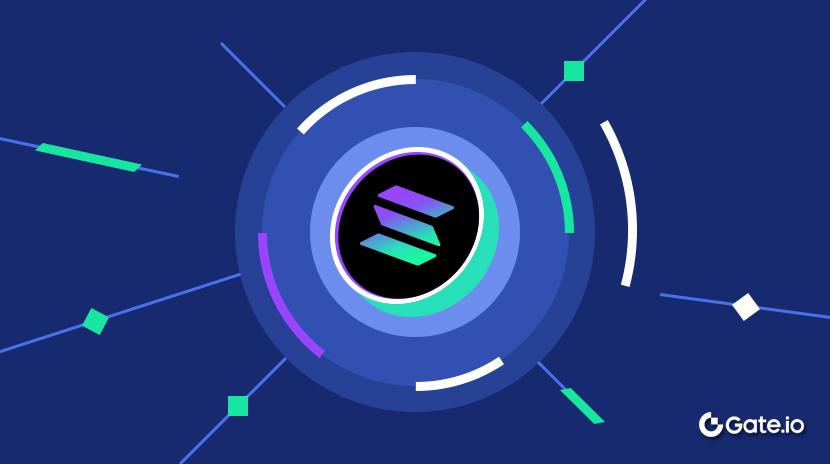AminoChainとは何ですか?
AminoChainは、医療機関と研究者を分散型ネットワークで結びつけることで生体標本の収集を改善するために設計されたブロックチェーンベースのプラットフォームです。生体標本の安全かつ透明な共有を促進し、患者がサンプルをコントロールできるようにします。このプラットフォームは、効率的な医学研究を促進するために、円滑なコラボレーションとデータへのアクセスを実現しています。導入
分散型の医療は、患者の手にコントロールを置き、医療機関、バイオリポジトリ、研究者、サービスプロバイダー間の構造化された協力を可能にすることで、医療データの管理と共有方法を変えています。AminoChainは、患者が医療記録の所有権を維持し、安全な権限付き共有を通じてアクセスを制御するモデルをサポートするためにブロックチェーン技術を活用しています。
従来の医療システムでは、患者データはしばしば複数のプラットフォームに断片化されており、包括的なアクセスが制限され、ケアの調整が遅れています。AminoChainは、この断片化に対処する分散型インフラストラクチャを導入し、電子健康記録(EHR)への一貫した、検証可能な、プライバシーを保護したアクセスを可能にしています。患者は中央集権的な仲介者に頼らずに、複数のプロバイダーや研究者とデータを共有することができ、これにより行政上の遅延を減らし、意思決定を改善するのに役立ちます。
システムは、患者のプライバシーを保護しながら研究者が大規模で匿名化されたデータセットにアクセスできるようにする臨床データ共有のためのフレームワークをサポートしています。この構造は、タイムリーなデータ分析、改善された再現性、臨床研究の広範な代表性を可能にすることで医学研究に貢献しています。これは、エビデンスに基づく実践の開発をサポートし、個別化された医療におけるデータ駆動アプローチの進歩を支援しています。
AminoChainとは何ですか?
AminoChainは、エンタープライズ医療機関、生体資料銀行、開発者をつなぐために構築された医療分野向けの分散型インフラストラクチャレイヤーです。その共通の目標は、患者と研究者への所有権、透明性、アクセスの復元です。
また、ヘルスケアデータの管理や交換においてHIPAA(健康保険携帯性及び責任法)とGDPR(一般データ保護規則)の遵守を支援するために設計されたブロックチェーンベースのプラットフォームです。これは、企業、研究ネットワーク、非営利団体、独立した科学者が規制に準拠した臨床およびバイオメディカルデータにアクセスし、それらを構築するためのインフラを提供します。

ソース:アミノチェーン
このプラットフォームは、バイオサンプルの流通改善を超えて拡張されています。透明性、協力、および患者参加に焦点を当てた新しいデータ駆動型のバイオ経済の発展を支援するよう構造化されています。その目標には、臨床研究と開発の効率化、学術界と産業界のステークホルダー間のパートナーシップの促進、および研究イニシアチブに参加することで患者が直接的な利益を得ることを確保することが含まれています。
資金調達
AminoChainは、Andreessen Horowitzのa16zをリードとするシードファンディングラウンドで500万ドルを調達し、Cercano、Antler、LightShift、Superscript、Alumni Venturesなどの投資家が参加しました。 AminoChainは以前、200万ドルのプリシードラウンドで資金調達を行い、執筆時点(2025年4月)での総調達額は700万ドルに達しました。
チーム
カスパー・バーンズ
Caspar BarnesはAminoChainの創設者です。彼はコロンビア大学とハーバード医学校を卒業しました。CasparのAminoChainとの旅は、彼がコロンビア大学で生物技術の起業コースに触発されたことから始まりました。
マクシミリアン・マシューズ
Maximilian Mathewsは、AminoChainのソフトウェア開発マネージャーです。彼は、ブロックチェーンとヘルスケアの交差点で解決策を構築することに焦点を当てたエンジニアで、バイオサンプルの取り扱いを改善することを目指しています。
ジェラニ・クラーク
Jelani Clarke博士は2024年1月以来、AminoChainの最高ビジネス開発責任者を務めています。以前はDeSciWorldのエグゼクティブリードおよびadMare BioInnovationsの准研究員を務めていました。
AminoChainの主な特長
スペシメンセンターマーケットプレイス

Specimen CenterはAminoChainの主力アプリケーションです。研究者、病院、および生物保存庫がピアツーピアで接続できる分散型マーケットプレイスです。このアプリケーションは、従来の調達の非効率性を排除し、生体試料の発見と取得を効率化するよう設計されています。
研究者は、メタデータフィルター(サンプルタイプ、収集方法、診断など)を使用して利用可能な標本を検索し、リクエストを開始し、安全で透明なインターフェース内で取引を管理することができます。目標は、サイロを取り除き、遅延を減らし、ネットワーク内のすべての生物試料の科学的有用性を最大化することです。
アミノノード統合
既存のワークフローを妨げることなく機関をオンボードするために、AminoChainはAmino Nodeを開発しました。このモジュラーソフトウェアレイヤーは、電子医療記録(EMR)や研究所情報システムなどの臨床システムと直接統合されます。ノードは機関データをAminoChainネットワークと互換性のある標準化された形式に変換し、機関の自律性を守りながら相互運用性を実現します。
ノードは、許可されたアクセスを容易にし、ネットワークを介して共有されるデータが健康保険携帯性法(HIPAA)や一般データ保護規則(GDPR)などのプライバシー法に準拠していることを保証します。
NFTベースの生体試料表現
AminoChainは、NFT(非代替トークン)の新しい応用を生命医学にもたらします。各生体試料は、オンチェーン上のトークン化されたデジタルアセットであり、収集の詳細、診断、同意状況、および保存条件などのメタデータにリンクされています。
これらのNFTは存在と出所の不変の記録として機能します。これらはアートコレクションのように取引するためではなく、実世界の資産への検証可能なポインターとして、追跡可能性、アクセス制御、および下流利用のためのスマートコントラクトの自動化を可能にします。
同意と補償メカニズム
AminoChainの最も破壊的な特徴の1つは、患者第一のアーキテクチャです。患者またはドナーが生体試料を寄付するたびに、同意に関する設定、誰がそれを使用できるか、どのような目的で、どれくらいの期間に設定できます。これらの設定はスマートコントラクトを介して強制されます。生体試料が後に商業研究で使用された場合、患者は補償の対象となります。
このメカニズムは、寄付者を利害関係者に変え、参加をインセンティブ化し、研究とその目的を達成する人々との倫理的な整合性を確保することによって、患者の関与を再定義しています。
AminoChainはどのように動作しますか?
AminoChainは、研究者が生物試料を発見しアクセスできる生体銀行の分散ネットワークを運営しています。ブロックチェーン上で生物試料を不可分トークン(NFT)として表現することで、プラットフォームは追跡可能性と信頼性を確保し、サンプルの取得と利用プロセスを効率化しています。
AminoChainは、電子医療記録(EMR)や病院およびバイオバンクの在庫管理などの既存のテックスタックと統合されるAmino Nodeというソフトウェアを提供しています。
データを標準化し、調和させることで、機関はデータの管理を維持しながらも、中立で相互運用可能なネットワークに参加できるようになります。また、データへのアクセス権を持つ開発者は、さまざまな患者中心のアプリケーションを作成できます。
AminoChainの最初のフラッグシップアプリは、組織、血液、唾液などの生体試料のための分散型のピアツーピアマーケットプレイスであるSpecimen Centerです。これにより、バイオバンクは在庫を発見可能にし、サンプル取得時間を数ヶ月から数分に短縮し、何よりも患者が自分のサンプルの旅を追跡し、生成された研究から学び、生体試料が商品化された場合に報酬を得ることができます。
AminoChainは医学研究にどのような利益をもたらすのか
透明性
ブロックチェーンの変更不可能な台帳により、AminoChainはすべての取引(生体サンプルの共有、ライセンス供与、または商業利用)が安全に記録されることを保証します。この透明性により、患者と医学研究コミュニティの信頼関係を再構築するのに役立ちます。
患者の権利保護
患者や生物試料提供者は、サンプルのライフサイクルを監視したり、派生研究成果に関する情報にアクセスしたり、サンプルが商業的に成功した成果に貢献した場合に収益を得ることさえできます。この利益分配モデルは、患者の同意と所有権に関する長年の倫理的懸念に対処しています。
相互運用性
Amino Nodeによって容易になった標準化されたデータ形式により、さまざまな医療機関間でのシームレスな統合と効率的なデータ共有が可能になり、従来のサンプルの検索、ライセンス取得、転送プロセスをはるかに迅速で効率化された体験に簡素化します。
医療分野における分散化:暗号通貨以外のユースケース

ソース: アクロポリウム
元々ピアツーピアの取引を可能にするために設計されたブロックチェーン技術は、医療を含むさまざまな分野で価値ある応用を見出して進化してきました。その分散型で安全な性質は、いくつかの長年の課題に対処し、患者ケア、データ管理、運用効率を向上させる革新的な解決策を生み出しています。アクロポリウム2024年の時点で831.54億ドルと評価されているブロックチェーン医療市場は、2034年までに178.91十億ドルに達すると予測されており、この技術への急速な採用と投資を示しています。
医療分野でのブロックチェーンの主な応用は、電子健康記録(EHRs)の管理です。現行システムはデータの断片化やプロバイダー間の相互運用性の制約に悩んでいます。ブロックチェーン技術は、個人が自分の記録へのアクセス権限を付与または取り消すモデルを運用できます。これにより、データの整合性と連続性が向上し、患者が個人の健康情報を管理する力が与えられます。
バイオメディカル研究では、ブロックチェーン技術によって透明性と再現性が向上します。チェーン上に保存された臨床試験データは遡及的に変更することができず、結果が検証可能であることを確保します。また、機関間での安全で匿名化されたデータ共有をサポートし、HIPAAやGDPRなどのプライバシー規制に準拠しながら、幅広い協力を促進し、研究者が多様なデータセットにアクセスできるようにします。
ブロックチェーン技術は、製薬サプライチェーンの追跡性と信頼性を向上させることができます。製造から流通までのすべての取引が記録され、偽薬のリスクを軽減し、規制基準を遵守することが保証されます。
保険請求処理の別の適用領域は、ブロックチェーンを用いた請求検証の自動化です。スマートコントラクトを使用することで、行政のオーバーヘッドを削減し、詐欺を最小限に抑えることができます。検証された医療イベントは、手作業の介入なしに支払いをトリガーし、より迅速で透明性の高い決済を実現します。
テレメディシンおよびIoTベースの遠隔患者モニタリングでは、ウェアラブルデバイスによって生成された健康データがブロックチェーン上で安全に記録され、ケアプロバイダーに重要な情報へのリアルタイムアクセスを提供します。
レガシーシステムと規制上の考慮事項との統合が制約要因である一方、医療分野でのブロックチェーンの実世界応用は相当なポテンシャルを示しています。
AminoChainと従来の生体標本バンキングインフラストラクチャーの違い
孤立した運用、データへの制限されたアクセス、そして最小限の患者関与が従来のバイオバンキングインフラストラクチャを長らく特徴づけてきました。AminoChainは、ブロックチェーン技術を活用して透明性のある、相互運用可能な、患者中心のバイオバンキングエコシステムを構築する革新的なアプローチを紹介します。以下は、主な違いを示す比較分析です。
データアクセス
従来の生体標本バンク:独自のシステムで独立して運営され、データの断片化が引き起こされる。研究者はしばしば生体標本の位置を特定してアクセスする際に課題に直面し、貴重なサンプルの二重努力と有効活用不足が生じることがあります
AminoChain:既存の医療機関の技術スタック(電子医療記録(EMR)や在庫管理システムなど)と統合されるソフトウェアパッケージであるAmino Nodeを利用して、データを標準フォーマットに調和させ、共同作業者間でシームレスな相互運用性を実現する。
トレーサビリティ
従来のバイオバンク:収集後の生物標本の経過を追跡するための堅牢なメカニズムがしばしば欠如しています。寄贈者や研究者はサンプルの使用方法について限られた可視性しか持っておらず、同意や倫理的監督に関する懸念が高まっています。
AminoChain:バイオスペシメンをトークン化するためにブロックチェーン技術を実装し、各サンプルを非代替トークン(NFT)として表現します。詳細なメタデータにリンクされ、収集の詳細、ドナーの同意、使用履歴が含まれており、各サンプルのライフサイクルの不変で透明な記録を確保します。これにより、ステークホルダーの信頼が向上します。
コンセント管理
従来のバイオバンク:通常、一度だけの同意プロセスを含み、寄付者はその後の使用における洞察や参加を継続的に行うことなく、サンプルの管理権を放棄します
AminoChain:スマートコントラクトを利用して患者に権限の選好を自動化し、強制することで、患者に力を与えます。寄付者は、自分の生物標本がどのように使用されるかを指定し、その標本の利用について通知を受けます。さらに、患者は、自分の標本が商業活動に貢献した場合には、補償を受けることがあります。これにより、より倫理的で参加型のモデルが育まれます。
AminoChainのニュース
アミノチェーン標本センターローンチ

ソース:アミノチェーン
AminoChainは、研究者と生体標本センターをつなぐ分散型マーケットプレイスであるフラッグシップ製品のSpecimen Centerを正式にローンチしました。このプラットフォームは、バイオスペシメンへのシームレスなピアツーピアアクセスを可能にし、科学的発見を効率化すると同時に、機関がコントロールを維持し、患者がステークホルダーであることを確保しています。
結論
AminoChainは、企業の医療機関をつなぎ、ユーザー所有の分散型医療アプリケーションを作成するためのレイヤー2ブロックチェーンプロトコルを開発しています。同社の看板商品であるSpecimen Centerは、バイオバンクの分散ネットワーク全体でサンプルを照会およびライセンス取得できるようにするバイオスペシメンマーケットプレイスとして機能しています。
Andreessen Horowitzのa16zとCercanoによる投資支援は、ブロックチェーンインフラを通じて科学研究の透明性と協力を高めることに焦点を当てたDeSci(分散型科学)への関心の高まりを示しています。
ただし、このモデルを採用する際には、伝統的な医療機関から新興技術への抵抗や、分散型プラットフォーム上の敏感な医療情報のデータプライバシーとセキュリティの確保など、継続的な懸念に対処する必要があります。
関連記事

ETHを賭ける方法は?



ソラナとは何ですか?

GateToken(GT)とは


